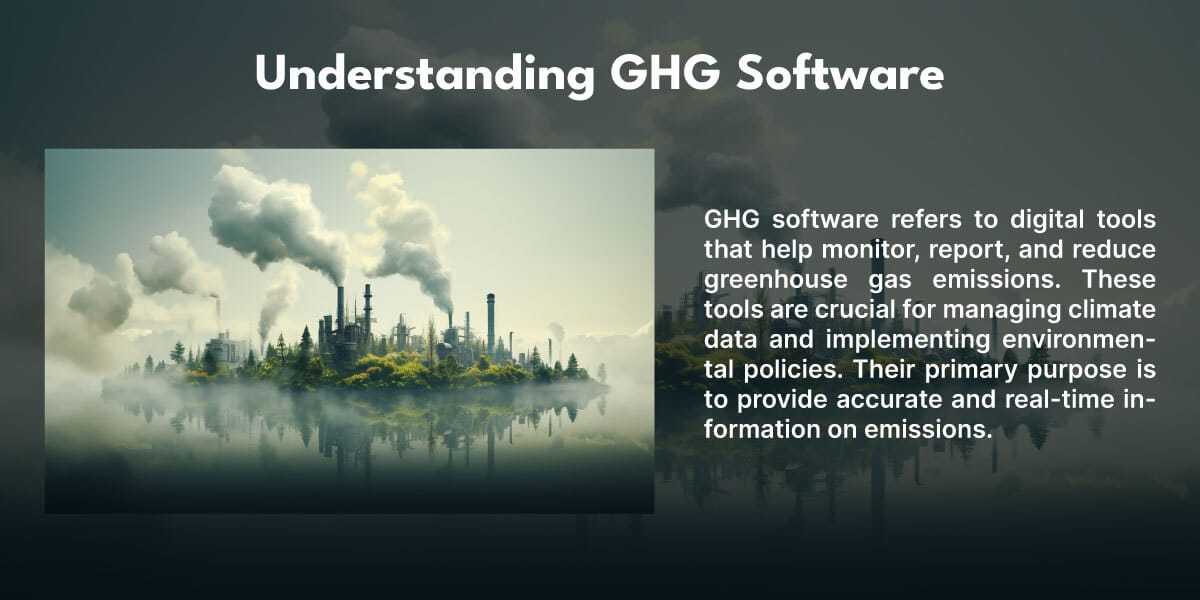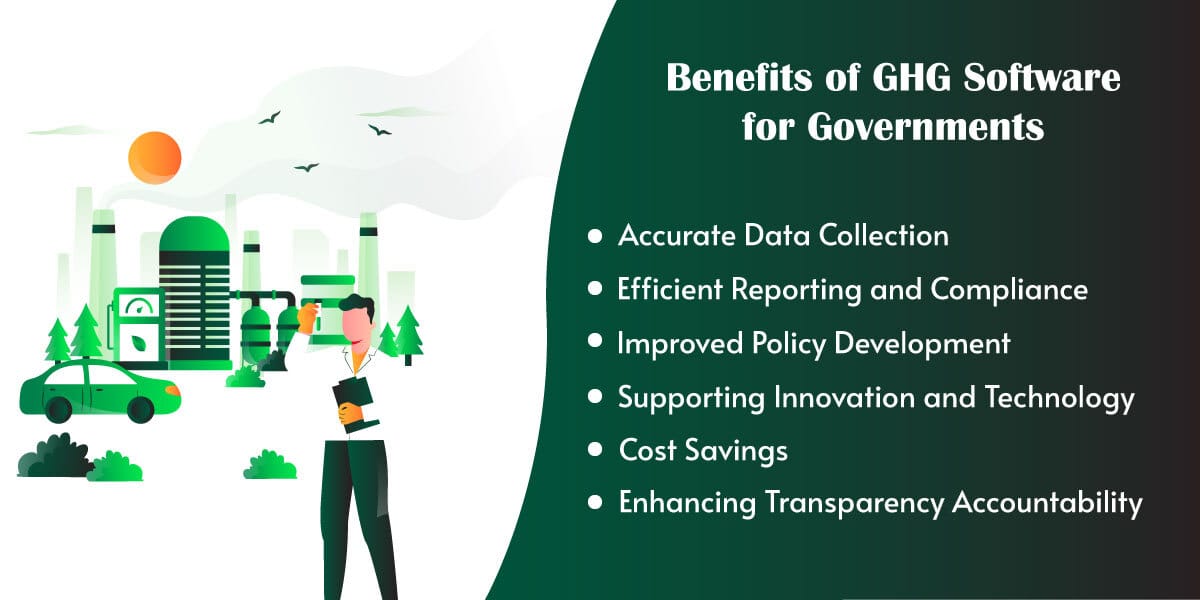Why Should Governments Invest in GHG Software?
Know why investing in GHG software is crucial for governments. Accurate emissions tracking, better policy development, cost savings, and enhanced transparency for a sustainable future.

Governments worldwide are increasingly focusing on addressing climate change, and Greenhouse Gas (GHG) software plays a crucial role in these efforts.
GHG software is designed to track and manage emissions, helping countries meet their environmental goals effectively.
Understanding its importance can highlight why investing in this technology is essential for modern governance.

Understanding GHG Software
GHG software refers to digital tools that help monitor, report, and reduce greenhouse gas emissions. These tools are crucial for managing climate data and implementing environmental policies.
Their primary purpose is to provide accurate and real-time information on emissions.
Types of GHG Software:
Various types of GHG software cater to different needs, such as inventory management systems, emissions tracking platforms, and compliance reporting tools.
Each type serves a specific function to support comprehensive environmental management.
Benefits of GHG Software at the Global Level
Countries like Germany and Japan have successfully implemented GHG software, leading to significant emission reductions. These examples demonstrate the global potential of such technology in combating climate change.
Benefits of GHG Software at the Local Impact
On a local level, cities using GHG software have seen improved air quality and better public health outcomes. Local governments benefit from tailored solutions that address specific environmental challenges.

Benefits of GHG Software for Governments
1. Accurate Data Collection:
GHG software ensures precise and consistent data collection, which is critical for effective climate action.
Accurate data helps in tracking progress and making informed decisions.
2. Efficient Reporting and Compliance:
These tools streamline the reporting process, making it easier for governments to meet national and international environmental standards. Efficient reporting reduces administrative burdens and improves compliance rates.
3. Improved Policy Development:
Access to reliable data allows policymakers to develop more effective environmental policies. GHG software provides insights that guide strategic planning and policy adjustments.
4. Cost Savings:
GHG software can lead to significant cost savings by optimising resource allocation and reducing inefficiencies. Governments can achieve their environmental goals more economically.
5. Enhancing Transparency and Accountability:
1. Public Trust:
Transparent reporting of emissions data builds public trust and encourages community engagement in environmental initiatives. It shows the government's commitment to accountability.
2. International Cooperation:
Reliable data and transparent practices foster better cooperation with international bodies. This collaboration is vital for addressing global climate issues collectively.
6. Supporting Innovation and Technology:
1. Encouraging Technological Advancements:
Investing in GHG software promotes the development of new technologies. These advancements can drive further improvements in emissions management and environmental protection.
2. Private Sector Collaboration:
GHG software enables governments to collaborate effectively with the private sector. This partnership can lead to innovative solutions and shared responsibility in reducing emissions.
Conclusion
GHG software is a powerful tool that can transform how governments approach climate change. By investing in this technology, they can achieve accurate data collection, efficient compliance, cost savings, and enhanced transparency. Ultimately, such investment supports innovation and fosters global cooperation, paving the way for a sustainable future.
